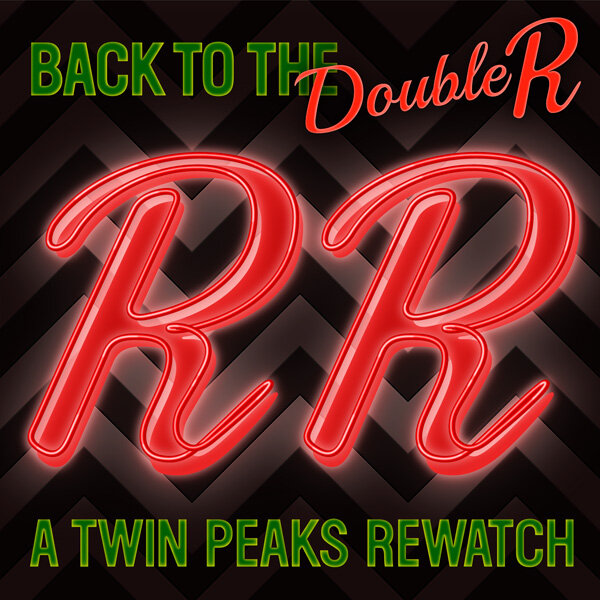Into the Light Of My Favorite Twin Peaks Scene
Statue of Justice atop Supreme Court of Nevada/Nevada Court of Appeals in Las Vegas Nevada, photo by Jonathan Pérez
NOTE—this article contains ***SPOILERS*** for Twin Peaks through Season 2 Episode 9 “Arbitrary Law”, I would absolutely recommend that you have watched the show through this point.
The best scenes in Twin Peaks boil down to their alchemical elements: a setting to elicit emotional intensity, the ethereal music of Angelo Badalamenti, a wee bit of the supernatural, and handing everything over to a couple of brilliant actors.
In “Arbitrary Law” (Season 2, Episode 9), all these elements come together to deliver what I feel is the finest scene of the series—when a dying Leland Palmer (Ray Wise) is comforted in his last moments by Special Agent Dale Cooper (Kyle MacLachlan), who recites a passage from the Tibetan Book of the Dead as the murderer of Laura Palmer (Sheryl Lee) passes. The scene is set in the basement of the Twin Peaks Sheriff’s Department, where Cooper attempts to elicit a confession from the man he knows to be Laura’s killer. Confessions are moments of emotional vulnerability. If you’re Catholic, it’s a sinner and a priest, together in a dark room, divided by a wall. The stage is set for the confessor to feel open and vulnerable. In a police station, perhaps the opposite effect is achieved. Fluorescent lighting is a harsh backdrop, and no wall separates cop and criminal; it is a setting designed to provoke guilt. Both guilt and vulnerability are on display here.
Leland, shed free of the inhabiting spirit BOB (Frank Silva), has finally come to a reckoning. Wracked with guilt, what little is left of the human side of him just now fully grasping the horrible nature of his crimes, is terrified. (I do think it is important that Laura does not let her father off the hook here. This is a moment left to interpretation, and we definitely hash this out between the four of us cohosts—but I do think it is crucial that she says, “My father killed me.” Not BOB. Not some supernatural force. Her father.) Cooper—who I feel is motivated by pure empathy here—cradles Leland in his arms and provides comfort. I don’t see this as a way of absolving Leland or otherwise casting innocence, but Cooper has let the audience know that he is responsible for the death of Caroline Earle (or at least he feels responsible). There is a part of Cooper that knows for as heinous as Leland’s crimes were no person should have to face the hell that awaits him without a moment of grace to usher him into the afterlife. Cooper recites his prayer, he confirms Leland’s vision of Laura, and Leland passes.
Underscoring the whole scene? “Laura Palmer’s Theme”, the piece of the Badalamenti score that plays out over the end credits of nearly every Twin Peaks episode. I don’t think it is at all coincidence that piece of music is used here. In many ways, that piece of music operates as Laura’s voice, and the song joins with Cooper’s voice in prayer as Leland dies. It’s my favorite piece of score from the show, and my favorite usage of “Laura Palmer’s Theme”. It has been used effectively in many scenes but the way the music underscores the action of this scene, it is as if this particular piece of music was written for this particular moment.
This moment also weaves in several supernatural elements. First, the scene is set up by Cooper puzzling out the nature of his Red Room dream at the Road House earlier in the episode. It is weaving the very real murder investigation with the surreal imagery of Cooper’s dreams. I also love the use of water here, set up almost innocuously by the smoke from Dick Tremayne’s cigarette triggering the sprinkler system at the sheriff’s department. The water almost seems baptismal and cleansing; washing away the final remnants of BOB from Leland and allowing the condemned man to receive grace.
The image I have chosen for the scene is of a statue of justice atop the Supreme Court of Nevada/Nevada Court of Appeals. The de facto title of the episode, “Arbitrary Law” has always felt very appropriate for this climactic episode. First, Leland is a lawyer by trade, and since this episode is such a showcase for his character it helps to have the title remind us of this. I also see this confrontation as a way for Leland to receive justice for his crimes. We have discussed the lack of a courthouse in Twin Peaks, and earlier in the episode Cooper pieces the final pieces of the puzzle together at the Road House, which served as the courthouse for the travelling Judge Sternwood (Royal Dano). Also, Justice is almost always rendered as blindfolded perhaps suggesting that matters of law, right and wrong, and justice have an element of arbitrariness to them. It could be the smallest of details—perhaps even ones divined from a, for lack of a better word, magical ceremony, that tip the scales of justice toward truth. Also—mild spoiler here—a good chunk of Twin Peaks in Season 3 takes place in Las Vegas, so this image of Justice felt appropriate.
The last thing I would like to comment on is the scene is a showcase for MacLachlan and Wise. Wise, especially once ushered into the interrogation room, is a tour de force, contorting his body and modulating his voice to convey the last spasms of evil BOB has in this host body, and then literally becoming a puddle as he dies in Cooper’s arms. MacLachlan is equally up to the task. For most of the series Cooper has been a mask, but the tight close-ups on his face convey how horrible he feels any loss of life is, and that he could not do more to help the pathetic and dying man in his arms. This is the scene that the first seventeen episodes of Twin Peaks has been building toward; a confession that allows the murder to be resolved and Cooper to grow as a hero. It is a conflict of good and evil brought to life by the avatars of those forces. The performances capture the nature of good and evil in the show, and Cooper’s turn toward compassion has many layers of significance. MacLachlan was nominated for an Emmy here, and Wise should have been (both should have won, what a crime for these performances to go unrecognized by the Television Academy).
Regardless, this is the type of scene that makes Twin Peaks such a legendary show. Series co-creator Mark Frost, in his introduction to the 2010 re-issuing of The Secret Diary of Laura Palmer, says they “designed the show to be built to last”. This scene is evidence of that maxim. Actors, writers, craftspeople, musicians all coming together at the peak of their powers to create an utterly indelible moment.


